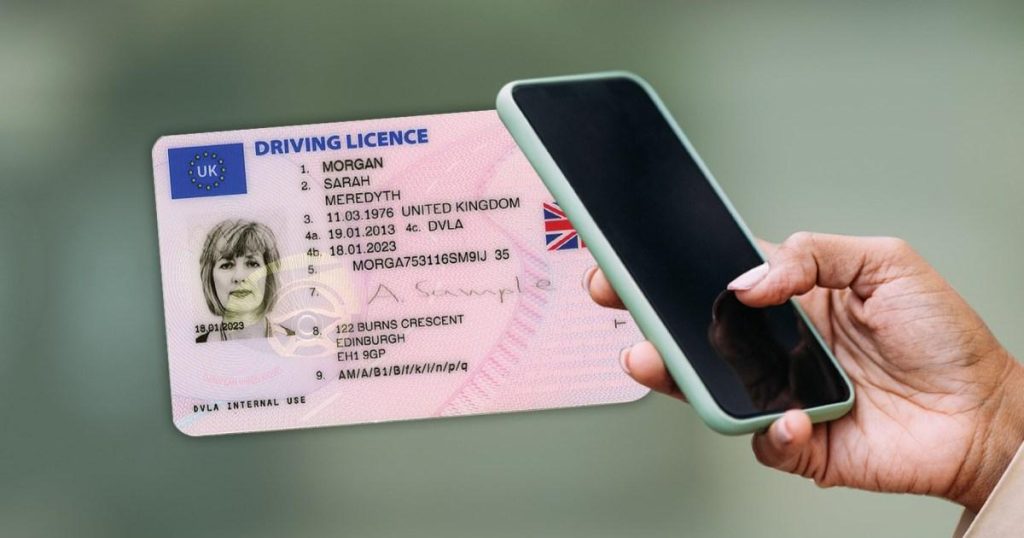Paragraph 1: Introduction of the Digital Driving Licence App
The United Kingdom is on the cusp of a significant technological advancement in personal identification and driving licensure. Plans are underway to introduce a digital driving licence app, slated for official launch in the near future. This innovative application, developed by the Department of Science and Technology, aims to digitize driving licences, allowing individuals to store and present their credentials on their smartphones. While the traditional physical driving licence cards will remain in circulation, the app offers a convenient alternative for individuals seeking a modern and efficient method of identification. This voluntary scheme signals a significant stride towards modernizing government services and bringing them into the digital age.
Paragraph 2: Functionality and Potential Applications
The digital driving licence app, expected to be available later this year, will reside within a secure virtual wallet on a government app. This differentiates it from commercial digital wallet services like Apple or Google Wallet, emphasizing its official nature and potential integration with government services. Beyond serving as proof of driving eligibility, the app is envisioned as a comprehensive digital identification tool. Its applications are wide-ranging, potentially facilitating voter identification, age verification for alcohol and tobacco purchases, and even domestic flight check-ins. The app is also being explored for use in supermarkets, potentially streamlining self-checkout processes by enabling age verification without cashier interaction. Developers are incorporating privacy features, allowing users to selectively hide address information from retailers or other parties when presenting the digital licence.
Paragraph 3: Existing Driving Licence Laws and the Digital Shift
Current UK law requires all drivers to possess a valid driving licence, with approximately 50 million individuals holding either a full or provisional licence. While carrying a physical licence while driving isn’t mandatory, drivers must present it to a police station within seven days if requested by law enforcement. The introduction of the digital driving licence app doesn’t alter these fundamental requirements but offers a more accessible and readily available form of identification. This digital format complements existing laws by ensuring drivers can readily demonstrate their eligibility to drive, thus supporting law enforcement efforts. The app’s development aligns with the government’s initiative to digitize public services, improving efficiency and user convenience.
Paragraph 4: Advantages and Potential Challenges of the Digital Licence
The digital driving licence presents several advantages, particularly in situations requiring identification. For instance, drivers stopped by police can easily display their credentials, eliminating the risk of forgetting or misplacing their physical licence. However, the app’s acceptance abroad remains uncertain, potentially posing challenges for international travellers who rely on their driving licence for car rentals or other purposes. While offering convenience on domestic soil, the absence of a universally recognized digital driving licence standard presents a potential hurdle for international travel. Ensuring interoperability and acceptance of the digital licence across borders will be crucial for its broader adoption and utility.
Paragraph 5: Privacy and Security Considerations
The digital nature of the new driving licence raises important concerns regarding cybersecurity and data privacy. Critics, such as Big Brother Watch, express apprehension about the potential for mandatory adoption of such digital identifiers for essential services, viewing it as an infringement on privacy. They emphasize the importance of maintaining control over personal information and the potential for misuse or unauthorized access to sensitive data. Counterarguments from the government emphasize the enhanced security of digital identities compared to physical documents, citing robust encryption and authentication measures incorporated into the app’s design. Addressing these legitimate privacy and security concerns is paramount for building public trust and ensuring the app’s responsible deployment.
Paragraph 6: Looking Ahead: The Future of Digital Identification
The digital driving licence app represents a significant step towards broader digital identification solutions. Its success could pave the way for similar digitization initiatives across various government services, streamlining administrative processes and enhancing citizen convenience. However, addressing concerns regarding international acceptance, cybersecurity, and privacy protections will be crucial for widespread adoption. The government needs to engage in open dialogue with stakeholders, including privacy advocates, technology experts, and the public, to address potential risks and enhance the app’s security and privacy features. The digital driving licence project not only promises a more convenient future but also raises critical questions about the balance between technological innovation and individual rights in the digital age.


